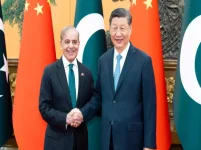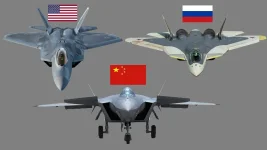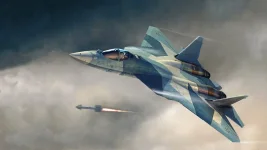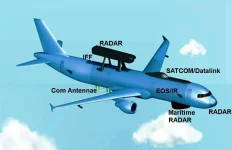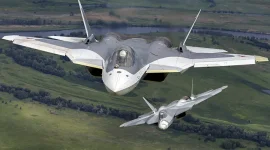- Views: 2K
- Replies: 13
In a notable development in regional military dynamics, China has reportedly rejected a formal request from Pakistan for the acquisition and technology transfer of advanced hypersonic missiles.
The decision is believed to be influenced by a combination of factors, including the unsatisfactory performance of some Chinese-supplied military hardware in Pakistan's possession and Beijing's apprehension that its closely-guarded hypersonic technology could be exposed to Western intelligence through Pakistan.
Sources indicate that China has clearly communicated to Pakistan that its premier hypersonic systems, such as the DF-17, are not approved for export.
Unlike many of its other military products which have specific export versions, Beijing has not developed a variant of its hypersonic missiles for international sale, effectively making the technology unavailable to its allies for the foreseeable future.
This refusal marks a significant moment in the otherwise strong "all-weather" defence partnership between the two nations. Pakistan has long been a primary recipient of Chinese military technology, including fighter jets, naval ships, and conventional missile systems.
The request for hypersonic missiles, along with a Transfer of Technology (ToT) agreement for local manufacturing, was perceived by Islamabad as a crucial step to maintain strategic balance with its neighbour, India.
Hypersonic missiles are a new class of weapon capable of flying at over five times the speed of sound (Mach 5) and executing unpredictable manoeuvres during flight.
This combination of speed and agility makes them exceptionally difficult for conventional missile defence systems to intercept, posing a significant challenge to existing military doctrines.
Pakistan's push to acquire this technology is a direct response to India's own progress in the field. India has been actively developing its hypersonic capabilities, including the successful testing of its Hypersonic Technology Demonstrator Vehicle (HSTDV).
The goal for Pakistan was to bridge this emerging technological gap with a reliable and powerful deterrent. However, China’s decision appears to be rooted in two primary concerns.
Firstly, there is growing apprehension in Beijing regarding the performance and reliability of its military equipment in real-world scenarios. Recent reports have highlighted operational issues with some Chinese systems used by Pakistan against India, which has likely made China cautious about exporting its most sophisticated and unproven strategic assets.
Secondly, China is highly protective of its hypersonic technology, viewing it as a critical element of its national deterrence strategy, primarily aimed at the United States and its allies. There are fears within the Chinese establishment that providing these systems to Pakistan could lead to potential leaks.
Given Pakistan's complex geopolitical relationships, there is concern that Western powers might gain access to the missiles for technical analysis, compromising China's strategic advantage.
For Pakistan, this denial is a considerable setback, compelling it to re-evaluate its strategic options. The nation may be forced to intensify its indigenous research and development efforts or seek alternative international partners, although viable options for such advanced technology are scarce.
While economic and military cooperation between China and Pakistan continues on other fronts, this decision underscores the strategic limits of their partnership.

